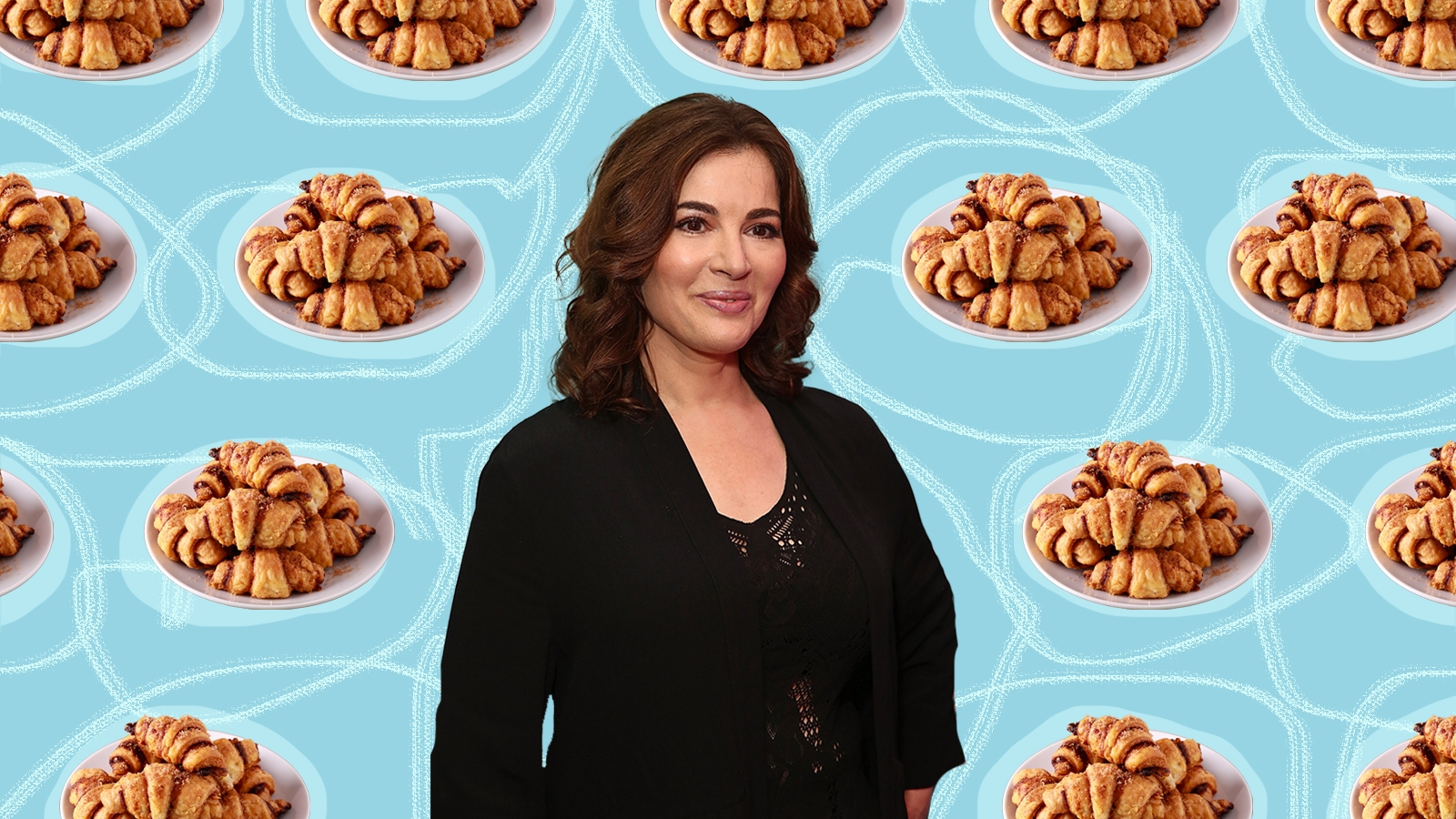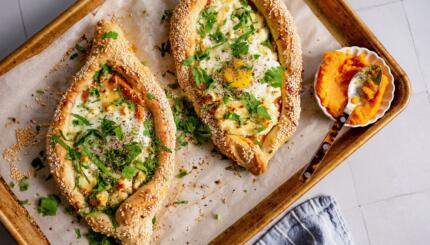Nigella Lawson (aka the Domestic Goddess) is Jewish, and has a surprisingly extensive archive of traditional Jewish recipes across her 13 best-selling cookbooks — from chicken soup and “dumplings” (matzah balls) to lots and lots of chicken.
“That idea of chicken,” Nigella told The Australian Jewish News, “I think it is essentially a Jewish thing.” In her TV shows, she’s often shown whipping up a chicken dinner, throwing ingredients into a roasting tin, emphasizing how easy it is to do, while a jazzy riff plays in the background.
With a famous love of Italy dating back to her adolescence, Lawson also explores dishes from the Italian Jewish kitchen, including a recipe for Venetian haroset. We’ve rounded up Nigella’s seven best Jewish recipes for you to enjoy:
1. Chicken Soup and Matzah Balls
“When it comes to comfort food, this is it. The real McCoy — or the real Mc-Oy,” says Nigella, with a wry smile in the accompanying TV show to her cookbook “Nigella Bites.”
The Nosher celebrates the traditions and recipes that have brought Jews together for centuries. Donate today to keep The Nosher's stories and recipes accessible to all.
Lawson uses a whole broiling chicken (aka stewing hen, an older bird with tougher but more flavorful meat) — feet and all — in addition to carrots, onion, bay leaves, celery, parsley stalks and peppercorns. The secret to her fluffy matzah balls (which she calls by the Yiddish name “kneidlach”), is to thoroughly whisk the egg — and use schmaltz, for flavor.
“You just have to taste this, even just look at it, to know that it’s going to do you good,” she says of chicken soup’s healing properties. Giving her bowl of golden soup a lovestruck stare, she digs in.
2. Venetian Haroset
Chestnuts, sultanas, dates, apricots and pine nuts are some of the more unusual ingredients in this “rich and sumptuous” haroset recipe from Venice, Italy, featured in “Feast: Food that Celebrates Life.” If you’re seeking to add intrigue to your seder plate this year — Passover is, after all, the holiday of asking questions — give this a try.
3. Coconut Macaroons
These large, generous macaroons from “How To Be a Domestic Goddess” are regaled by reviewers due to their light-yet-still-dense-enough texture. Bookmark for Passover, or whenever you have a gluten-free guest.
4. Noodle Kugel
“The recipe comes from Ellen Fishman in San Francisco — I demanded it — and is her Grandma Judy’s. In keeping with the spirit of things, I have kept the vast quantities. Besides, I love it cold and so do my children, wrapped up to take to school for their break,” Nigella writes in “Feast: Food that Celebrates Life.”
5. Cinnamon Rugelach

Nigella calls her rugelach “scuffles,” a puzzling choice rigorously dissected in this article. Name aside, this easy recipe doesn’t even require a mixer — and involves a genius hack to take your cookies to the next level. (Spoiler: Nigella rolls her rugelach out in cinnamon-sugar rather than flour.)
6. Tagliatelle with Chicken from the Venetian Ghetto
Nigella attributes this easy, comforting pasta made with shredded roast chicken, sultanas, pine nuts and herbs to the godmother of Jewish culinary wisdom, Claudia Roden. “My gratitude is immeasurable. It is such a crucial part of my life,” she writes in “How to Eat.”
7. Honey cake with Dates and Apples
Nigella has two honey cake recipes for Rosh Hashanah, though the first, which appeared in “Feast” does not actually contain any honey, but rather the very British Golden Syrup — a light treacle. The second version is more explicitly Rosh Hashanah coded: “a symbolic expression of most urgent hopes for a sweet year ahead,” writes Nigella, of this “cake of seductive squidginess.”



